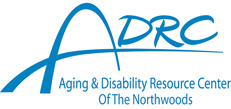 |
We help you with the tough stuff.
|
|
Housing Options The following describes some of the various housing options available to older adults and individuals with disabilities who are looking for supportive services in their place of residence. ADRC specialists are available to help evaluate these options by assisting our customers in the complicated decision-making process of weighing the various factors involved, including costs, services, customer priorities and goals. Senior (Low-Income) Subsidized Housing Senior Housing is generally multi-unit rental housing that is specifically designed for and marketed to elderly and, sometimes, disabled tenants. Most offer studio and/or one bedroom apartments and some have a recreation room or other common area for social gatherings. There may be a manager on-site to organize events or assist with independent living. Tenants may arrange for supportive services from outside sources or providers, as with any in-home care. No license or special regulation is required for the facility. There are income eligibility limits that vary by location and, generally speaking, rents do not exceed 30% of the individual's or couple's gross income. Some utilities are usually included. Assisted Living Facilities When referring to "Assisted Living Facilities," these generally fall into three categories which are identified below:
A nursing home is a health care facility which provides room, board and 24-hour a day care. Residents may be admitted for short-term respite or recuperative stays, or for long-term care for chronic conditions. Nursing homes are licensed by the State of Wisconsin. Most are also certified for both Medicare and Medicaid, which is the case for ALL beds in the ADRC of the Northwoods region, which means they take public funds (Medical Assistance/Medicaid) to cover the cost of care for eligible residents. Complaints regarding Residential Care Facilities & Providers To review background information on caregivers through the Division of Quality Assurance in Wisconsin, click here. Provider Search is another option, a tool that provides an easy and fast method for consumers to find health and residential care providers in Wisconsin. Complaints about Health Care or Residential Care in Wisconsin. This fact sheet provides information on how to file a complaint with the Division of Quality Assurance against a provider, agency or regulated long-term care facility. Care Options There are a wide array of in-home supports and services available to meet people's needs, without having to move!
Let's face it - One of the major considerations in discussing housing and care options is HOW TO PAY FOR THEM? ADRC Specialists can sit down with families, confidentially and in the comfort of their homes, and discuss the costs associated with each of these options and then assist them in navigating through the variety of funding sources, whether it's private-pay, Medicare-covered services, benefits of long-term care insurance, VA Benefits or financing through publicly-funded programs. Click here to find out more information on how to pay for nursing home care. By planning ahead, people can often conserve and extend their personal resources, maintain their health and independence for a longer period of time and even prevent the need for potentially expensive long-term care. For information on programs and services in your area contact the ADRC of the Northwoods at 800-699-6704 |